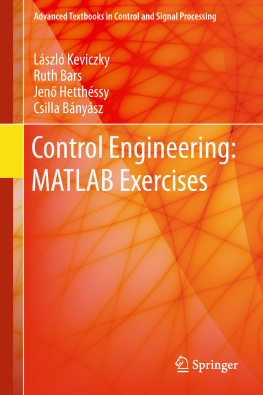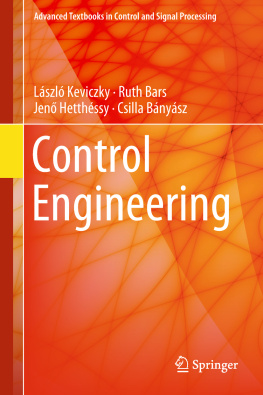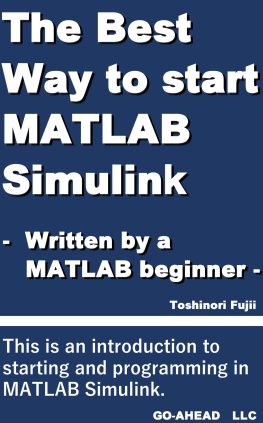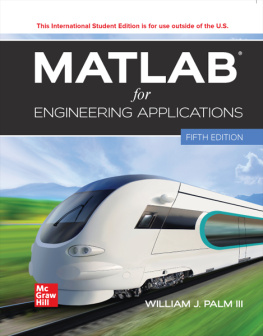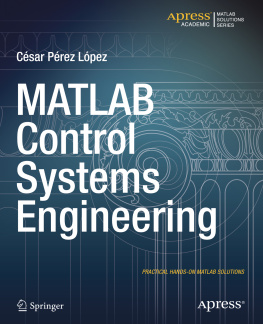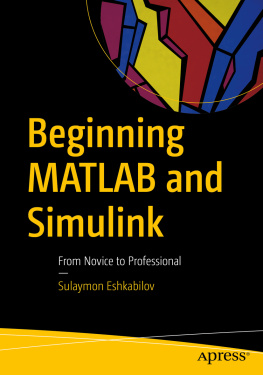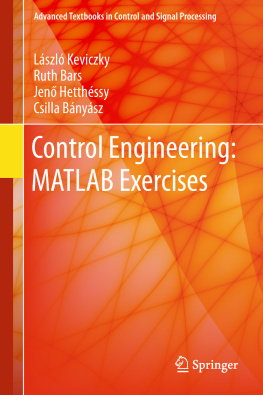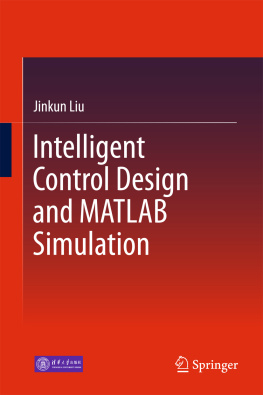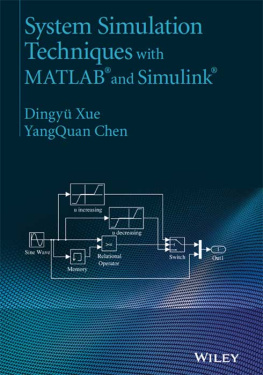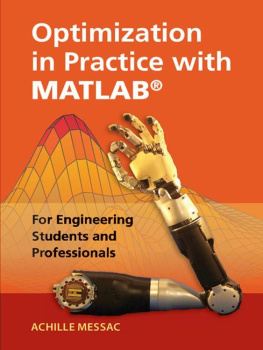LГЎszlГі Keviczky - Control Engineering: MATLAB Exercises
Here you can read online LГЎszlГі Keviczky - Control Engineering: MATLAB Exercises full text of the book (entire story) in english for free. Download pdf and epub, get meaning, cover and reviews about this ebook. year: 0, publisher: Springer Singapore, genre: Computer. Description of the work, (preface) as well as reviews are available. Best literature library LitArk.com created for fans of good reading and offers a wide selection of genres:
Romance novel
Science fiction
Adventure
Detective
Science
History
Home and family
Prose
Art
Politics
Computer
Non-fiction
Religion
Business
Children
Humor
Choose a favorite category and find really read worthwhile books. Enjoy immersion in the world of imagination, feel the emotions of the characters or learn something new for yourself, make an fascinating discovery.
- Book:Control Engineering: MATLAB Exercises
- Author:
- Publisher:Springer Singapore
- Genre:
- Year:0
- Rating:4 / 5
- Favourites:Add to favourites
- Your mark:
- 80
- 1
- 2
- 3
- 4
- 5
Control Engineering: MATLAB Exercises: summary, description and annotation
We offer to read an annotation, description, summary or preface (depends on what the author of the book "Control Engineering: MATLAB Exercises" wrote himself). If you haven't found the necessary information about the book — write in the comments, we will try to find it.
Control Engineering: MATLAB Exercises — read online for free the complete book (whole text) full work
Below is the text of the book, divided by pages. System saving the place of the last page read, allows you to conveniently read the book "Control Engineering: MATLAB Exercises" online for free, without having to search again every time where you left off. Put a bookmark, and you can go to the page where you finished reading at any time.
Font size:
Interval:
Bookmark:
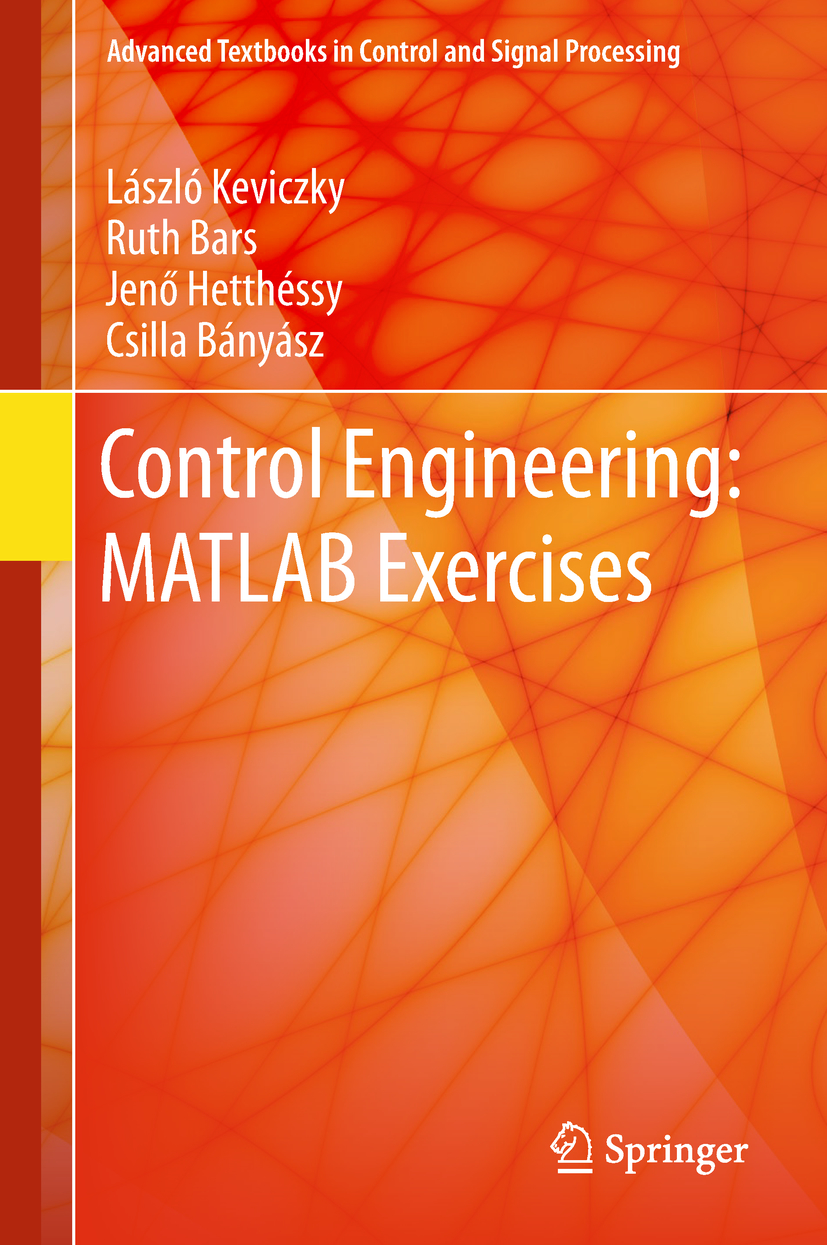
More information about this series at http://www.springer.com/series/4045

This Springer imprint is published by the registered company Springer Nature Singapore Pte Ltd
The registered company address is: 152 Beach Road, #21-01/04 Gateway East, Singapore 189721, Singapore

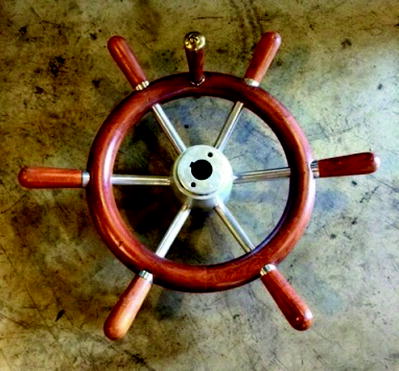
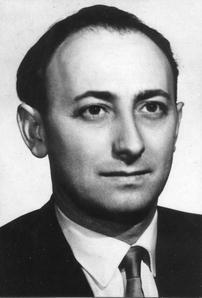
Frigyes Cski
(19211977)

This book is intended to aid students in their study of MATLAB/SIMULINK for use in solving control problems. Specifically, 16 labs for an introductory control course have been developed at the Department of Automation and Applied Informatics, Budapest University of Technology and Economics. This book is a collection of these labs. This exercise book is a supplement to the textbook Control Engineering, by Lszl Keviczky, Ruth Bars, Jen Hetthssy, and Csilla Bnysz [1], which is used in the control course. Each chapter of this exercise book is related to the corresponding chapter of the textbook.
The importance of accompanying textbooks by labs using CAD software was recognized decades ago at the department. At that time, a set of FORTRAN libraries supported the instruction both in control systems analysis and design. We still believe that learning control theory is best motivated by applications and simulations rather than by concepts alone. In fact, the use of MATLAB allows a lot of theoretical concepts to be easily implemented. If students can immediately show for themselves how certain concepts work in practice, they will go back to the theoretical considerations with greater confidence and an improved ability to move to the next field to study. Well, feedback is around us, anyway.
The problems discussed in this book are limited to linear, time-invariant control systems. Both continuous-time and discrete-time systems are considered, with deterministic inputs.
MATLAB/SIMULINK is useful only for those students, who master the tools offered. Though the application of MATLAB commands is simple and straightforward, a systematic introduction together with control-related examples is a must in our opinion. Time should be devoted to practicing fundamental MATLAB facilities, alternative command sequences, and visualization capabilities. An introductory lab is devoted to demonstrating the availability and power of MATLAB in this respect.
Frequency functions and transfer functions form essential tools in classical control theory. Interestingly enough, the frequency domain considerations gave a remarkable impetus to the postmodern control era, as well. Three labs have been devoted to discussing fundamental analysis of continuous-time systems including feedback and stability. As far as controller synthesis is concerned, three labs treat Y oula -parameterized control design, as well as PID compensation and series compensation for processes with dead time have also been elaborated. The case of controlling unstable processes is also involved. The theoretical discussion of state-space representations is supported by two labs offering a gentle introduction to the subject, as well as demonstrating the efficient algorithms and MATLAB commands available for state variable feedback.
These days, controllers are implemented as digital controllers. As most of the processes to be controlled are continuous time in nature, digital control needs additional tools to cover sampled data systems. Just to support the development of a proper view of discrete-time systems, an introductory lab has been added to this topic. Two labs are devoted to discrete controller design. One of them shows controller design using the Y oula parameterization, and the design of a S mith predictor as well as a deadbeat control as special cases of Y oula parameterization. The second lab discusses discrete-time PID controller design. State feedback control for discrete systems is also provided in a lab devoted to this topic.
Two labs deal with the polynomial design method for the compensation of unstable processes, both for the continuous and the discrete case.
In the last lab, the modelling and simulation of a heating process provide a case study.
Font size:
Interval:
Bookmark:
Similar books «Control Engineering: MATLAB Exercises»
Look at similar books to Control Engineering: MATLAB Exercises. We have selected literature similar in name and meaning in the hope of providing readers with more options to find new, interesting, not yet read works.
Discussion, reviews of the book Control Engineering: MATLAB Exercises and just readers' own opinions. Leave your comments, write what you think about the work, its meaning or the main characters. Specify what exactly you liked and what you didn't like, and why you think so.

